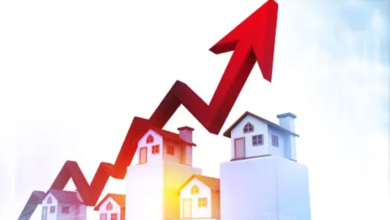How to buy a foreclosed home in ny

Welcome to the bustling real estate market of New York! If you’re on the hunt for a new home, why not consider buying a foreclosed property? Not only can it be an affordable option, but it also presents a unique opportunity to invest in prime New York real estate. But before diving into this exciting venture, it’s crucial to arm yourself with knowledge and know-how. In this blog post, we’ll guide you through the ins and outs of purchasing a foreclosed home in NY. From what to look for when inspecting properties to negotiating the best price, we’ve got you covered. So let’s jump right in and discover how you can make your dream of owning a foreclosed home in NY a reality!
What to look for when buying a foreclosed home
First impressions matter, even when it comes to buying a foreclosed home. As you begin your search, pay attention to the overall condition of the property. Look for signs of neglect or damage that may require extensive repairs or renovations. Keep an eye out for issues such as water damage, mold, and structural problems.
Next, consider the neighborhood in which the foreclosed home is located. Is it a desirable area? Are there amenities such as schools, parks, and shopping centers nearby? Research crime rates and property values in the neighborhood to ensure you’re making a wise investment.
Don’t forget about potential liens on the property. Before finalizing any purchase, make sure you conduct a thorough title search to uncover any outstanding debts or claims against the property. This step will help protect you from unforeseen financial burdens down the line.
Additionally, take note of any additional costs associated with purchasing a foreclosed home. These can include unpaid taxes or homeowners association fees that may become your responsibility upon taking ownership.
Don’t underestimate the importance of getting a professional inspection done before making an offer. An experienced inspector can identify hidden issues that could impact your decision-making process and budgeting plans moving forward.
By keeping these factors in mind during your search for a foreclosed home in NY, you’ll be better equipped to identify properties with potential and avoid costly pitfalls along the way!
How to inspect a foreclosed home
When buying a foreclosed home in NY, it is crucial to thoroughly inspect the property before making any decisions. Inspecting a foreclosed home allows you to identify potential issues and estimate repair costs accurately. Here are some steps to follow when conducting an inspection.
Start by examining the exterior of the house. Look for signs of damage or neglect such as cracked walls, missing shingles, or overgrown vegetation. Pay attention to the condition of windows and doors as well.
Next, move inside and assess each room individually. Check for water stains on ceilings or walls, which could indicate leaks or plumbing problems. Test light switches and outlets to ensure they are functioning correctly.
Inspect the kitchen appliances and bathroom fixtures carefully. Look for signs of wear and tear or outdated equipment that may need replacement.
Don’t forget to check the basement for any signs of water damage or structural issues such as cracks in the foundation.
Hire a professional inspector if needed, especially if you lack experience in assessing properties yourself. They can provide more comprehensive reports on potential issues that may not be apparent during your initial inspection.
Remember that inspecting a foreclosed home requires thoroughness and attention to detail. By taking these steps, you can make an informed decision about whether purchasing a particular property is worth it considering its condition
How to negotiate a price for a foreclosed home
When it comes to negotiating the price for a foreclosed home in New York, there are several key strategies that can help you secure a great deal. First and foremost, do your research on the current market value of similar properties in the area. This will give you a solid understanding of what constitutes a fair price.
Next, be prepared to make an initial offer below the asking price. Remember, banks are motivated sellers and may be willing to negotiate on the price. However, keep in mind that they will also consider factors such as repair costs and any outstanding liens or taxes owed.
During negotiations, it’s important to remain flexible and open-minded. Be willing to compromise on certain terms or conditions if it means getting closer to your target price. Additionally, don’t be afraid to ask for concessions such as covering closing costs or including appliances or furniture in the sale.
Having a pre-approval letter from your lender can strengthen your position during negotiations. It shows that you are serious about purchasing the property and have already taken steps towards securing financing.
By being well-prepared, flexible, and knowledgeable about market conditions, you’ll increase your chances of successfully negotiating a favorable price for a foreclosed home in New York.
What to do if you can’t reach an agreement
Sometimes, despite your best efforts, it may not be possible to come to a mutually agreeable deal when buying a foreclosed home in New York. When faced with this situation, there are several steps you can take.
It’s important not to get discouraged. Keep in mind that there are plenty of other foreclosed properties available on the market. Take some time to reassess your budget and priorities. Maybe there is another property out there that meets your needs even better.
Consider seeking the assistance of a real estate agent who specializes in foreclosures. They have valuable knowledge and experience navigating these types of transactions and may be able to help you find alternative options or negotiate with the seller on your behalf.
Additionally, explore different financing options that could potentially make the purchase more feasible for both parties. For example, offering a larger down payment or proposing flexible terms might sway the seller towards accepting your offer.
If all else fails and reaching an agreement seems impossible, it might be necessary to walk away from the deal altogether. While disappointing, it’s crucial to remember that buying a home is a significant investment and finding the right property at the right price is worth waiting for.
Remember – patience and persistence are key when dealing with foreclosure purchases!
What to do if you’re offered too low of a price
If you’re offered too low of a price for a foreclosed home in NY, don’t panic! There are steps you can take to navigate this situation. First, do your research and determine the fair market value of similar properties in the area. This will give you an idea of what price range to expect.
Next, consider making a counteroffer. Present the seller with evidence supporting your higher offer and explain why it is justified based on market conditions or property improvements needed. Be prepared to negotiate and find a middle ground that both parties can agree on.
If negotiations stall and it seems unlikely that you’ll reach an agreement, explore other options such as looking for alternative foreclosure listings or considering properties outside of NY where prices may be more favorable.
Keep in mind that buying a foreclosed home is often a long process filled with uncertainties. It’s important to stay patient and persistent while weighing your options. Remember, finding the right property at the right price takes time and effort but can ultimately lead to great opportunities for homeownership in NY!
What to do if you’re offered too high of a price
In some cases, the bank or lender may offer a foreclosed home at a price that is simply too high. This can be discouraging, especially if you have your heart set on purchasing the property. However, there are still steps you can take to potentially negotiate a more reasonable price.
Do your research and gather evidence to support your case for a lower price. Look at comparable properties in the area and their selling prices. Highlight any issues or repairs needed in the foreclosed home that could justify a lower offer.
Next, approach the bank or lender with your findings and make a counteroffer based on market value and necessary repairs. Be prepared for negotiations and be willing to provide documentation or estimates from contractors as supporting evidence.
If the bank refuses to budge on their asking price, consider seeking advice from a real estate agent experienced in dealing with foreclosures. They may have insights into alternative strategies such as waiting for further reductions in listing prices or finding similar properties that are priced more reasonably.
Remember, buying a foreclosed home requires patience and persistence. Don’t let emotions cloud your judgment when it comes to pricing negotiations. Stick to your budget and be prepared to walk away if the terms aren’t favorable.
In conclusion,
Buying a foreclosed home in New York can be an excellent opportunity for those looking for affordable housing options. By understanding what to look for when buying these properties, how to inspect them thoroughly, and how to negotiate effectively with banks or lenders, you can increase your chances of finding success in this unique real estate market.
While there may be challenges along the way – such as not reaching an agreement on price – by staying informed and taking proactive steps towards achieving your goals, you’ll be well-equipped to navigate through any obstacles that come your way.
So whether you’re searching for an investment property or hoping to find an affordable place to call home, the process of buying a foreclosed home in New York can



